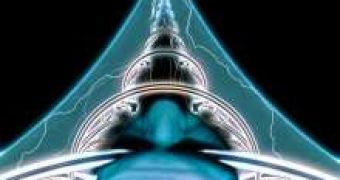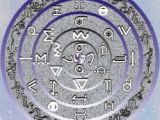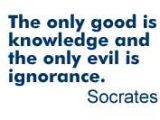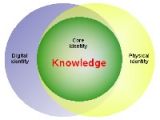Ever since human civilization evolved to a full grown concept, knowledge had always acted as a means to control human psyche. The greatest men in political fields, dictators and the like, have deliberately used knowledge to secure their control over the masses and thus to gain a place in history. In a similar way, religion was used as a type of mind controlling force to psychologically manipulate millions of people in an effort to control the masses and spread its faith as much as possible. Moreover, governments feel that people should be kept away from certain types of information, so they censor it, keeping parts of it hidden from the public eye. Under these circumstances, many have asked themselves about the reasons why many groups and organizations are willing to give away huge amounts of money in order to possess control of our minds. Could it be that mankind changed its view on knowledge, realizing it is evil? That maybe some things are not supposed to be known for our own protection? If we think that people always fear what they don't know, then we are able to conclude that fearing knowledge, as a concept, is a clear way to misunderstand it. It is true that knowledge has always proved to be both a blessing and a burden, and perhaps this constant duality of knowledge provided human beings with a dilemma for centuries. People have always rushed to blame knowledge, but knowledge without the backing of interpretation has no effect whatsoever, for only in the mind of a person it can actually acquire the status of a threat or of a savior.
In order to understand the nature of knowledge, we must take into consideration both its facets, the objective and the subjective sides. Before being run through the human mind filters, knowledge is purely objective. For example, when a baby is born, the people witnessing the event, parents and doctors gain the collective objective knowledge that a new life has just begun. On the other hand, once the event passed, human minds begin to filter the event and enrich it with personal subjective interpretations. The mother of the child may be inclined to think that her new born will become someone important, who might as well develop a successful treatment for cancer. At the same time, doctors witnessing the birth of the child might think about the fact that this baby is adding up to the global population boom that will bring humanity closer to extinction. As a consequence, even though all people had the same initial objective reasoning on the event, minutes later they all gave a different interpretation, which is to say they acquired a subjective type of knowledge, the product of their individual minds, which makes perfect sense to them. This situation is an example for any kind of context in which we are in contact with information, take Einstein's equation for example. After it was made public, there could have been someone who said to himself, "this discovery could be used to provide clean and cheap nuclear power to the masses", while another one thought "with this kind of energy present in an atom, nuclear energy could be used to make the ultimate weapon". Therefore, the real question regarding knowledge is actually referring to the reason why there are so many types of subjective interpretation when knowledge is purely objective.
The answer for this question might be that human beings are not raised and do not live in identical circumstances, therefore they have different experience backgrounds which produce distinct outlooks on life. Whenever we are exposed to a new piece of knowledge, our mind automatically and subjectively analyzes it to make it conform to our knowledge base, which in turn completes furthermore a cycle that was started at birth and has been going on since then with everything new that we come into contact. The human pool of knowledge consists of moral, ethical principles and language and all of them have a different but deep impact on the way we interpret any new piece of information. They represent important marking points that we have learnt because they have been imposed on us by social conventions, with which we have been living, and to a considerable extent, by our own personal experiences.
Probably one of the factors which have had the greatest influence on how we reason and interpret knowledge is language, the main way in which we receive and communicate knowledge. But language is unfortunately not a perfect tool, in the sense that it lacks precision, and when it is used extensively under such circumstances, it means it will burden the imagination, the latter having to add up to what language lacks. Sometimes, even the tone we use when we communicate something may attach subjectivism to our words. The ideal purpose of language is to express the exact same message that we mean through words, but this is often only an illusion since individuals use different types of vocabulary and the interpretation given to their words can vary to a great extent due to the cultural backgrounds that I mentioned above. This is how many brilliant scholars and the knowledge they intended to send have been severely and carelessly misinterpreted and thus stigmatized. Moreover, another weakness of language is the fact that people can easily manipulate the opinions of other individuals, with the help of subtle word usage, thus having a greater influence on the way in which others receive and process the information that is being passed to them. The issue here, again, is not in the information that we possess, but rather in the methods, actually the type of language, we use to communicate it to others.
Moreover, in our quest for knowledge one cannot downplay or ignore the role of ethics or the ethical conduct of individuals and societies in the pursuit of knowledge. Consider the case of nuclear physics, which ultimately led to the creation of the atomic bomb. At the time, nuclear research was often hailed as a great gift to mankind as it was thought to be able to provide infinite amounts of clean and cheap energy. Unfortunately, in their insatiable thirst for knowledge many physicists were so surprised by the magnitude of their discoveries that they failed to rationalize the consequences of their work. Regrettably, at that time there was not nearly enough experimental evidence or theoretical evidence to guide their action, and often they would have to rely on fundamental ethical principles to judge the significance of their findings and their impact on the future. Only today can we truly asses the impact that the research conducted decades before has had on our world. Nuclear weapons are now stockpiled throughout the globe and the matter of ethics in the search for knowledge is still hotly debated. Even today, after we have seen the result of the nuclear weapons fiasco, we continue to seek knowledge that has the potential to be beneficial but also immensely harmful such as the science of genetics. We are still unable to define a clear boundary where the quest for knowledge should end and where and how ethical principles should emerge to guide us.
Knowledge in its purest form is not the cause of pain or pleasure as we often attribute it to be. Only once it has passed through the vast expanse of the human mind can it take on such subjective properties. Throughout our lives we are exposed to a constant stream of knowledge which develops us as human beings and becomes the basis for our experiences, morals, ethics, and language. These factors all then contribute to altering our perception of any knowledge that we may receive thereafter, adding to a self perpetuating cycle of interpretation and manipulation of objective knowledge. Many of us fail to approach knowledge with a holistic understanding of these inconceivably complex principles and in our ignorance we often fall victim to the tremendous consequences of possessing vast amounts of knowledge. Knowledge is a powerful tool and as such must be treated with respect, a respect that is often overlooked in our almost ravenous yearning for more and more of it.

 14 DAY TRIAL //
14 DAY TRIAL // 



